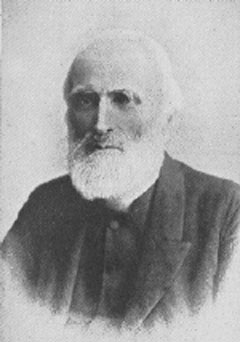Steven Avery said:
Steven Avery] So you believe all Greek and Latin Bibles in the 1500s were corrupted and worthless by being either used by either the Roman Catholics and the Greek Orthodox (whom you call Catholics). An interesting theory." Is it your position that they worked as a team to suppress the true manuscripts said:
1. All manuscript Bibles have some errors, which are commonly called corruptions when discussing textual issues within lower criticism. This does not presuppose a nefarious purpose such as denying the Trinity or the Deity of Christ. Some would conflate the terms used in lower criticism and derive a supposed wicked intent from some overworked copyist because of a mistake caused by poor lighting or hearing during the tedious process of duplicating manuscript Bibles. Then unsuspecting Christians who have not studied the transmission of the Bible throughout the ages can be incited into believing that some manuscript bibles are Satan's bibles and contain doctrinal errors. I reject that whole approach to discussing the transmission of the Bible. This, in my opinion, is the end game of the KJVO extreme who calls valid Bibles, Satan's Bibles. It is simply a way to blaspheme the Holy Spirit and cast doubt upon the veracity of God's Word.
So far, nothing even remotely related to the textual question.
[quote author=bgwilkinson] 2. Miles Smith gives us a discussion of how they translated in the early 1600s. I believe he presents an “eclectic†methodology, understanding that no single manuscript Bible should be elevated to the status of the “standard,†or the only valid Bible, as was claimed for the Vulgate. They realized that each manuscript Bible contained scribal errors of various kinds, and that the true and original text was best sought in the plurality of Bible sources, original language and versions. That is why he makes such a fuss over the LXX, claiming that it prepared the world for the coming of the LORD, even as he admits it contained many blemishes.
All this theorizing is falsified by the simple fact that the learned men used the Received Text editions for all 8,000 verses of the NT.
[quote author=bgwilkinson] 3. We could say all manuscripts of the 16th century were corrupt, meaning that they all had errors or mistakes.
Mistakes in manuscripts do not make them worthless on the contrary they can be used for comparison to other manuscript Bibles for text critical purposes. All had some level of corruption but none were worthless. [/quote]
Still totally irrelevant to the question.
[quote author=bgwilkinson]4. The Eastern Catholic Church (Orthodox Church) mainly is to be thanked for supplying us with thousands of Greek manuscript Bibles. Many of these can be used to determine the original Scripture readings. The Western Catholic Church (Roman Church) has supplied us with more thousands of Latin manuscript Bibles which can be also be used for determining the original Scripture readings. [/quote]
Exactly! This is how the Received Text was developed. Adding the ECW and sound textual thinking.
The modern versions use a totally different methodology in taking the Westcott-Hort recension and concepts false.
[quote author=bgwilkinson]2. I find it humorous that you would include one of your favorite whipping boys. I thought Hort lived in the 19th century not in the 16th century. Maybe you are hinting that Hort made contact with the 16th century by means of a seance. [/quote]
I was simply trying to parse your ever-changing position. First you were attacking the Greek and Latin texts of 1500 as Catholic, now you are saying the pure word of God is in those texts.
As for Hort, the Westcott-Hort recension, the Critical Text, is the main alternative today to the pure Bible. Since you were attacking the Greek and Latin mass of mss, you sounded like a hortian.
[quote author=bgwilkinson]1. The Bible is to be found in the totality of all the manuscripts extant today. It is our responsibility as believers to search out the Scripture for ourselves. We are not to depend on ecclesiastical authorities or religious professionals. We should study the Scriptures for ourselves. We can not put off our responsibility on others. 2. Owning NA27 and using it to identify the place where the various readings are to be found does not indicate an abdication of that responsibility in the least. It is rather an example of using the textual professionals work to do the study ourselves.[/quote]
Confusion everywhere in your position.
The Bible is out there .. somewhere .. in the mss.
And every believer should make up their own text. Thus, there is no plumbline.
The only position you attack is actually believing the Bible we read is God's pure and perfect word.
====
Since you lauded the NA-27 apparatus, do you support the NA-27 text over the historic Reformation Bible?
Or do you simply not know.
Why not answer directly and honestly?
Steven
[/quote]
Steven said,
"All this theorizing is falsified by the simple fact that the learned men used the Received Text editions for all 8,000 verses of the NT."
BG says,
Steven, I was giving you what Miles said about how they wrote their version, I was not speculating.
I admit I was not very good at explaining what Miles said, I will work at getting my explanation of it in a more understandable formate, that will have to wait.
Have you actually read and studied what Miles said about how they wrote their new version?
Seems to me that when I mention something Miles said you react in a way that indicates you have not read the part of TTTR that I was referencing. Well, I could be wrong and you do not believe what Miles said about the way they wrote their version.
I accept what Miles said as well as believe that is how they did their version.
The learned men used the Received Text editions for all 8,000 verses of the NT, well not exactly.
In parts of the NT Erasmus occasionally introduced into the Greek text material taken from the Latin Vulgate where he thought his Greek manuscripts were defective. For example, in Acts 9:6 the words trevmwn te kai; qambw’n ei\pe, kuvrie, tiv me qevlei" poih’saiÉ kai; oJ kuvrio" pro;" aujtovn (“And he trembling and astonished said, Lord, what wilt thou have me to do? And the Lord said unto himâ€) were inserted by Erasmus at this point because they were in the Vulgate. He frankly admitted in his Annotationes that he took the words from the parallel passage in Acts 26:14.
Though still found in the TR, the words have absolutely no Greek manuscript support.
With so few manuscripts from which to establish his Greek text, Erasmus was bound to adopt a reading which would ultimately, in light of future manuscript discoveries, prove to be in error.
This is especially true in the book of Revelation where Erasmus had only one manuscript. Since no two manuscripts agree exactly, it is essential that manuscripts be compared to determine where the errors lie. But since that was not possible in Erasmus’ case, his text in Revelation is limited by the accuracy of his one manuscript.
An example of this problem can be seen in Revelation 20:12. Following Codex 1r, the text of Erasmus and the TR read “standing before Godâ€. However, all other Greek manuscripts read “standing before the throneâ€.
Erasmus Annotationes indicate that he had examined and collated a few other manuscripts in his various travels besides the seven we normally mention. One of these, which can be identified with certainty, is Codex 69, a 15th century manuscript of the entire NT with minor gaps. In a few places Erasmus selected distinctive readings from this manuscript.
Steven said,
"First you were attacking the Greek and Latin texts of 1500 as Catholic, now you are saying the pure word of God is in those texts.
BG says,
I am not attacking any Bible manuscripts regardless of the errors and blemishes that may be apparent.
Calling a manuscript owned by Catholics, Catholic is in no way an attack upon it or Catholics.
The Catholics who translated the Rheims were valid translators. They used words that were literal but obscure, even Miles realized their NT was a valid copy of the Bible.
You will not find me casting aspersions against the Bible.
All versions produced by learned men are valid Bibles and I accept them as God's Holy Word.
That is what Miles said and I agree with him concerning Bible translation issues.
As to the pure word of God that is to be found in the Golden Pipes of the original languages.
Translations can never be as exact as the original languages. Check out what Miles said about them.
We may disagree on this point, however, I agree with Miles and not with the KJVOs.
Steven said,
"As for Hort, the Westcott-Hort recension, the Critical Text, is the main alternative today to the pure Bible. Since you were attacking the Greek and Latin mass of mss, you sounded like a hortian."
BG says,
I do not subscribe to Hort's methods, rather I subscribe to the text critical methods described by Miles.
Steven, again I was not attacking any valid Bible, Hebrew, Greek, Latin, English or some other translation.
The Greek Bibles produced by the Greek Church are valid as well as the Latin Bibles produced by the Roman Catholic Church.
All of them contain some number of errors, mistakes and blemishes, which does not in any way mean they are false Bibles or worthless. They are all useful for determining the original readings, the Golden Pipes.
Please spend some time reading TTTR, what you will read in Miles preface represents my views on Bible translation issues.
I have chided you about this in the past
You will not find Miles speak of a pure text anywhere, except the Golden Pipes, the idea of only one pure text fits well with the teaching of the Roman Catholic Church of the 1500s in reference to the Vulgate.
It is up to each individual believer to read and study the Scriptures for themselves.
Now they can make the decision to depend on the opinion of some self appointed religious authority, but that does not excuse them of personal responsibility to search the Scriptures for themselves.
Steven said,
"Since you lauded the NA-27 apparatus, do you support the NA-27 text over the historic Reformation Bible?"
BG says,
I do not view the NA27 text as the one and only text, it is useful for comparison purposes on a case by case basis. I believe they are many times too aggressive in their choice of readings.
NA27 or NA28 is most useful because you have access to many Bible manuscripts in one small book.
One does not need to use their suggested text to find great help in the margin notes.
I gave you my opinion and my belief. Please see Miles TTTR and do not dismiss it.
This is what I believe, I am not being deceptive in the least.






